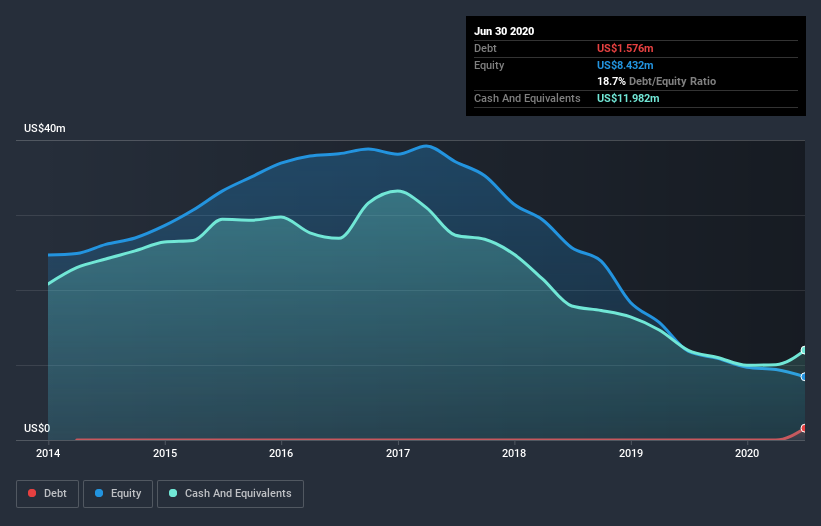Does BSQUARE (NASDAQ:BSQR) Have A Healthy Balance Sheet?

Some say volatility, rather than debt, is the best way to think about risk as an investor, but Warren Buffett famously said that 'Volatility is far from synonymous with risk.' So it seems the smart money knows that debt - which is usually involved in bankruptcies - is a very important factor, when you assess how risky a company is. We can see that BSQUARE Corporation (NASDAQ:BSQR) does use debt in its business. But the more important question is: how much risk is that debt creating?
Why Does Debt Bring Risk?
Debt and other liabilities become risky for a business when it cannot easily fulfill those obligations, either with free cash flow or by raising capital at an attractive price. In the worst case scenario, a company can go bankrupt if it cannot pay its creditors. However, a more common (but still painful) scenario is that it has to raise new equity capital at a low price, thus permanently diluting shareholders. Of course, plenty of companies use debt to fund growth, without any negative consequences. The first thing to do when considering how much debt a business uses is to look at its cash and debt together.
Check out our latest analysis for BSQUARE
What Is BSQUARE's Net Debt?
As you can see below, at the end of June 2020, BSQUARE had US$1.58m of debt, up from none a year ago. Click the image for more detail. But on the other hand it also has US$12.0m in cash, leading to a US$10.4m net cash position.
How Healthy Is BSQUARE's Balance Sheet?
Zooming in on the latest balance sheet data, we can see that BSQUARE had liabilities of US$11.4m due within 12 months and liabilities of US$2.22m due beyond that. Offsetting this, it had US$12.0m in cash and US$6.88m in receivables that were due within 12 months. So it actually has US$5.22m more liquid assets than total liabilities.
This luscious liquidity implies that BSQUARE's balance sheet is sturdy like a giant sequoia tree. With this in mind one could posit that its balance sheet is as strong as beautiful a rare rhino. Simply put, the fact that BSQUARE has more cash than debt is arguably a good indication that it can manage its debt safely. When analysing debt levels, the balance sheet is the obvious place to start. But you can't view debt in total isolation; since BSQUARE will need earnings to service that debt. So if you're keen to discover more about its earnings, it might be worth checking out this graph of its long term earnings trend.
In the last year BSQUARE had a loss before interest and tax, and actually shrunk its revenue by 11%, to US$56m. We would much prefer see growth.
So How Risky Is BSQUARE?
Statistically speaking companies that lose money are riskier than those that make money. And we do note that BSQUARE had an earnings before interest and tax (EBIT) loss, over the last year. Indeed, in that time it burnt through US$1.6m of cash and made a loss of US$4.0m. But at least it has US$10.4m on the balance sheet to spend on growth, near-term. Overall, its balance sheet doesn't seem overly risky, at the moment, but we're always cautious until we see the positive free cash flow. There's no doubt that we learn most about debt from the balance sheet. However, not all investment risk resides within the balance sheet - far from it. Consider for instance, the ever-present spectre of investment risk. We've identified 2 warning signs with BSQUARE (at least 1 which can't be ignored) , and understanding them should be part of your investment process.
Of course, if you're the type of investor who prefers buying stocks without the burden of debt, then don't hesitate to discover our exclusive list of net cash growth stocks, today.
This article by Simply Wall St is general in nature. It does not constitute a recommendation to buy or sell any stock, and does not take account of your objectives, or your financial situation. We aim to bring you long-term focused analysis driven by fundamental data. Note that our analysis may not factor in the latest price-sensitive company announcements or qualitative material. Simply Wall St has no position in any stocks mentioned.
Have feedback on this article? Concerned about the content? Get in touch with us directly. Alternatively, email editorial-team@simplywallst.com.

 Yahoo Finance
Yahoo Finance 
